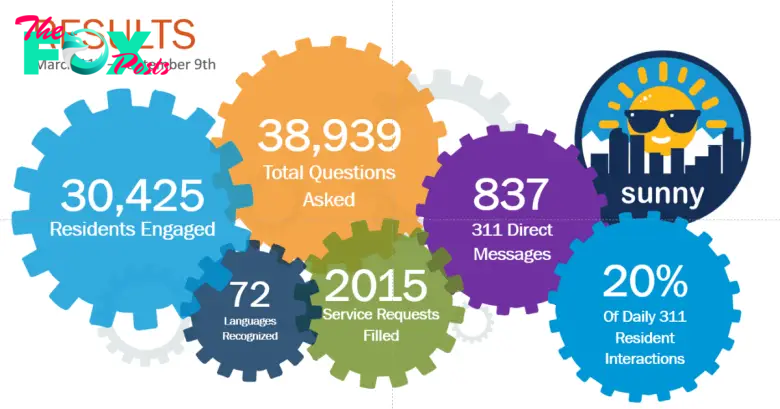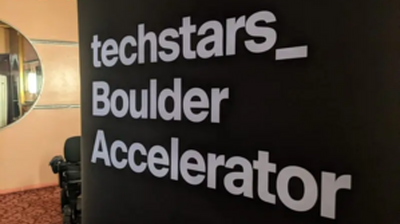Technology
AI is growing fast. Here’s how Colorado is trying to keep up.
At some point over the summer, Sunny got a little bit smarter.
Sunny, the artificially intelligent chatbot the city of Denver rolled out last spring, wasn’t roving the Denver interwebs or trolling neighborhood social networks. The genderless bot was just getting faster at what it was designed to do, mainly by remembering what it had already done.
“It’s simpler for Sunny to come back quickly with a response if it’s already gone through the workflow,” said Suma Nallapati, the city’s chief information officer who’s in charge of making sure the tech works for city employees and residents. “For example, (asking) what is my trash pickup day for this street? If it knows the address and if it knows the pickup day, it’s easier for it to answer that question the next time around.”
Baby steps, really. Sunny’s still in a crib to prevent it from escaping into the experimental world of generative AI, the Game-changing tech popularized by OpenAI’s ChatGPT-4 that has machines creating new content. Sunny spent a year in training before a public debut last April, and after the city’s own generative AI use policy was drafted, vetted and approved.
Humans are still involved in feeding Sunny, to make sure its responses are appropriate, accurate and not, as they say in the AI biz, hallucinations. Top-ranked restaurants, which a local magazine asked Sunny about a few months ago, was excised from Sunny’s memory, since the city’s isn’t in the Business of specific restaurant promotion. In the past six months, Sunny has handled 20% to 30% of calls and texts to the city’s 311 information service, which eases the workload of the human operators.

In a world where AI is developing so fast, Denver’s trying to carefully establish itself as a city that welcomes innovation to solve problems but also considers unintended consequences. It even organized next week’s DenAI Summit, touted as the nation’s first city-led conference on the topic. That’s in line with the state, where potential privacy, prejudice and piracy issues of AI led lawmakers to pass a law in May curbing some AI development. Colorado was first in the country with such a law, though challenges from the tech industry will likely result in revisions.
The Governor’s Office released its GenAI policy last month, which impacts all state agencies, said Amy Bhikha, chief data officer for the Governor’s Office of Information Technology. Anything with a generative AI component must pass OIT guidelines. GenAI can’t be used to make decisions “materially impacting individuals or entities.” In other words, vetting applicants for state benefits or funding, or an adverse action, like an arrest or detention, must rely on human decision makers.
OIT is also trying to figure out how tech like ChatGPT, Google’s Gemini or Microsoft Copilot can help employees in their jobs and assist residents with state services.
“We have a whole innovation piece that we’re setting up,” Bhikha said. “We’re doing a trial right now with Google Gemini. We have 150 people across all agencies using it and giving us feedback every week. And then we’re looking to potentially set up a lab in the future.”
A lab would allow staff to test out available AI tools like GraMMArly and Read.ai, to quickly provide suMMAries and transcripts of meetings.
So far, none of the experiments have the potential to be public facing. But check back in a month, she said.
The speed of AI
AI and tech companies have been around for years in Colorado, with an ecosystem that includes machines that take fast-food orders, algorithms combating sepsis in hospitals and robots that sort recycling. Many consumers may not realize they’re already experiencing it, be it with transcribing meetings, getting help from customer service or searching on Google.
But for some young startups in the genAI space, growth has been lightning fast. Take Adeel Khan, for example. Two years ago, the Denver resident was on a break after more than a decade of teaching and working as a school administrator, including as the founding principal of Conservatory Green High School in Denver. He wasn’t thinking of starting a company.
Then ChatGPT-4 launched.
“I started trying to use it for things I would be doing as a teacher and principal and I found a lot of utility (and) I wondered if educators were using it,” Khan said. “I had no idea for a software company but I did what a principal would do, which is I went to my old school and I trained teachers on how to use ChatGPT. And in those sessions, (their) jaws were on the floor.”

He’d follow up weeks later only to find the teachers had stopped using it. They didn’t have time. They forgot what to do. They never figured out how to ask good prompts to achieve better responses. So Khan started MagicSchool in March 2023 as a digital helper. The service can quickly make a first attempt to generate lesson plans, create math problems or write letters to parents in the same way a teacher’s assistant would.
MagicSchool raised $2.4 million from local investors last year and went on to add $15 million more in venture capital in July. Khan now leads the 40-person company from his Denver living room. This week, it reached 3 million users.
“I think of AI as this really incredible opportunity to (help) educators and to assist them in their work, fight teacher burnout, help them be more efficient and also maybe augment (and) quickly refresh their knowledge on a subject they hadn’t taught before,” Khan said. “The second part is the student tool. We need to prepare students for a future where AI is everywhere. Next month, Apple will implement AI features in the iPhone. They’re already in Android phones. If we’re not teaching kids how to use AI in school responsibly, then we’re just leaving them to their own devices.”
But there are definitely lines MagicSchool won’t cross: Grades.
-

 Technology11h ago
Technology11h agoThere Is a Solution to AI’s Existential Risk Problem
-

 Technology14h ago
Technology14h agoUS pushes to break up Google, calls for Chrome sell-off in major antitrust move | The Express Tribune
-

 Technology18h ago
Technology18h agoPublic health surveillance, from social media to sewage, spots disease outbreaks early to stop them fast
-

 Technology19h ago
Technology19h agoTikTok, PTA host youth safety summit in Pakistan | The Express Tribune
-

 Technology23h ago
Technology23h agoWhy a Technocracy Fails Young People
-

 Technology1d ago
Technology1d agoTransplanting insulin-making cells to treat Type 1 diabetes is challenging − but stem cells offer a potential improvement
-

 Technology1d ago
Technology1d agoJapan's $26 billion deep sea discovery sparks serious environmental concerns | The Express Tribune
-

 Technology1d ago
Technology1d agoShould I worry about mold growing in my home?



























